Carrollton Car Accident Lawyer
Car accidents can be life-altering events, leading to physical injuries, emotional distress, and financial burdens. If you've been involved in a car accident in Carrollton, Texas, it's crucial to understand your rights and legal options available to you. At Carrollton Injury Law, we are dedicated to providing personalized and effective legal representation to help you navigate this challenging time. We offer a free car accident injury claim evaluation.
WERE YOU OR A LOVED ONE SERIOUSLY INJURED?
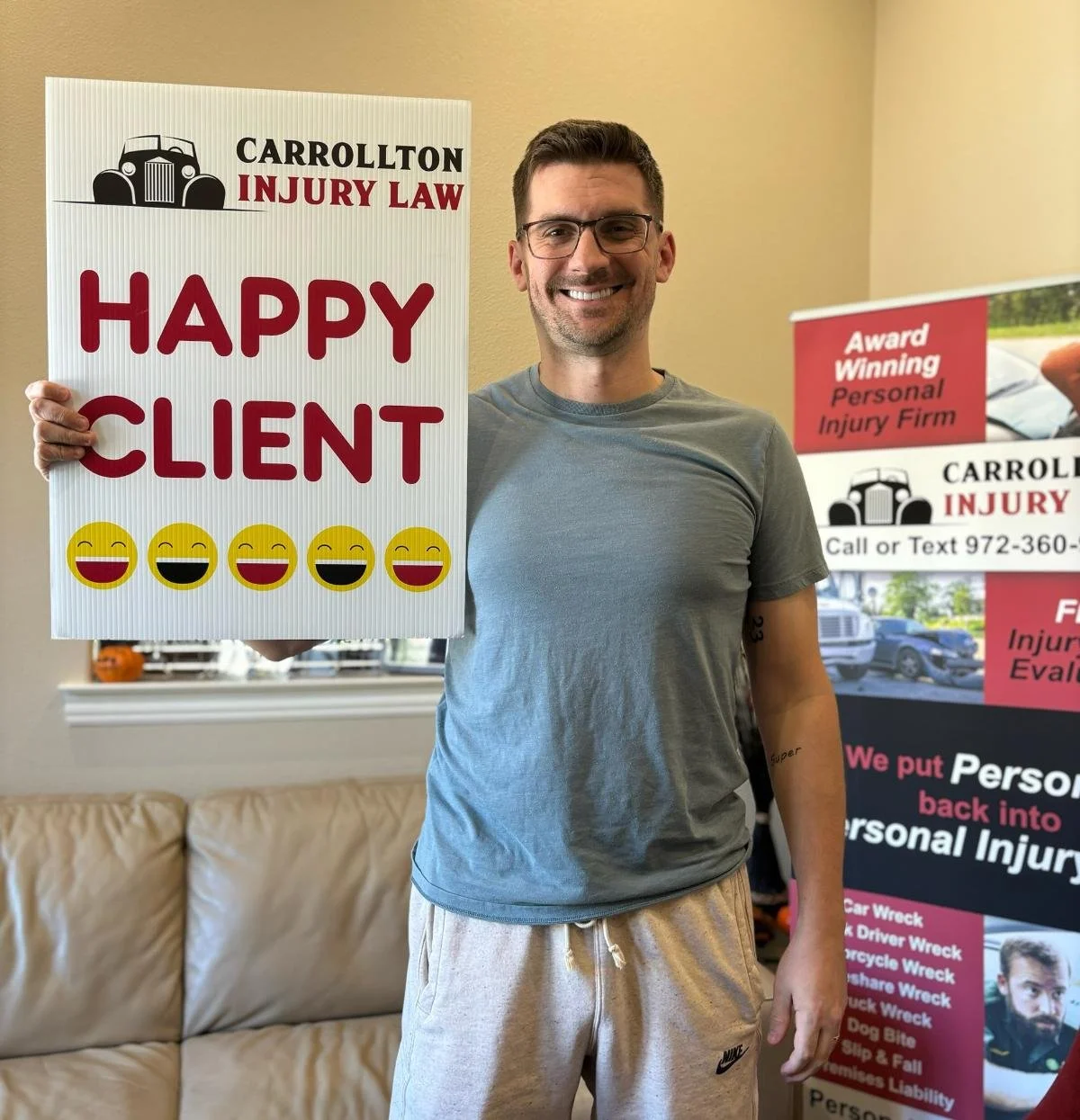





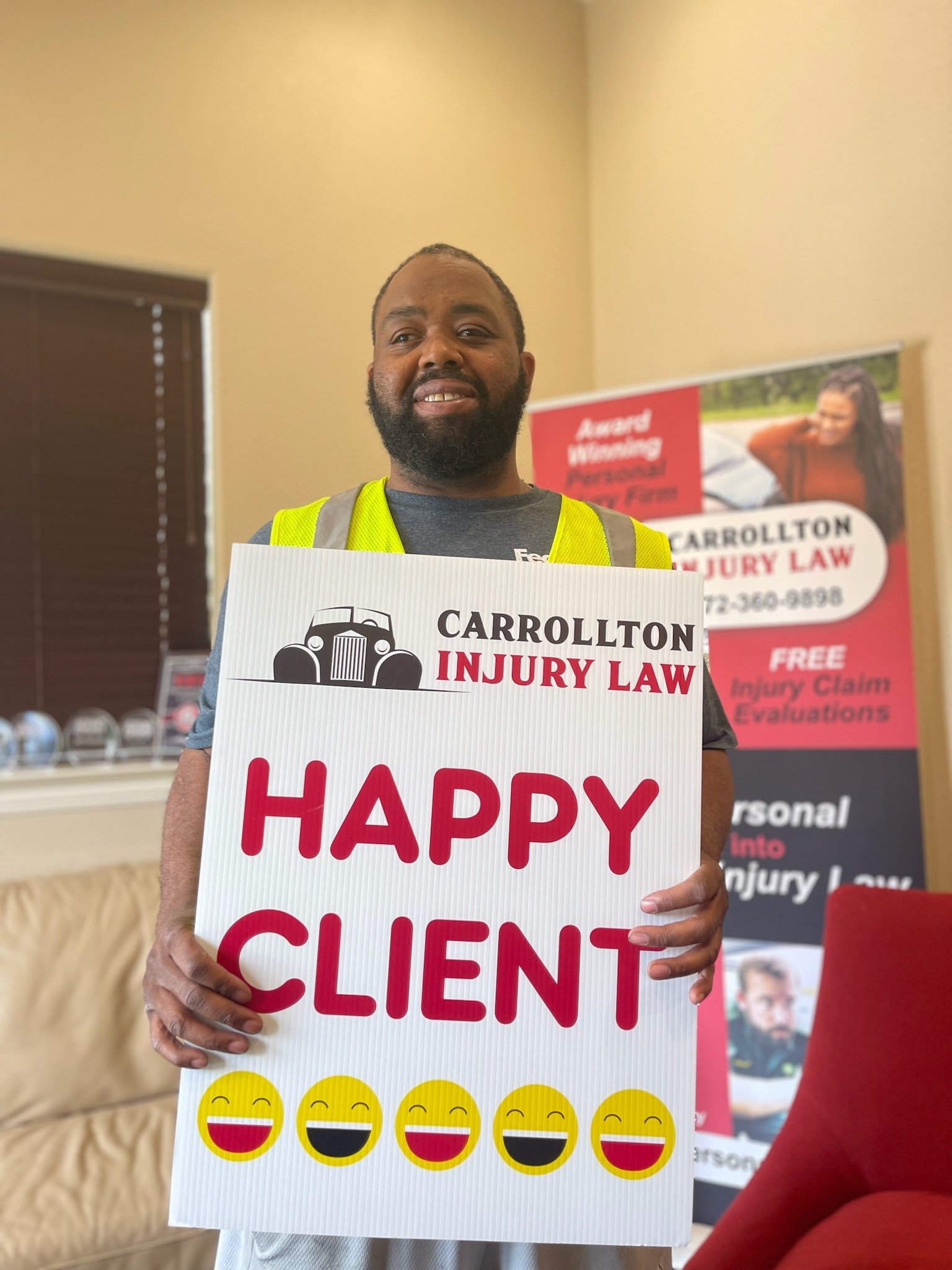
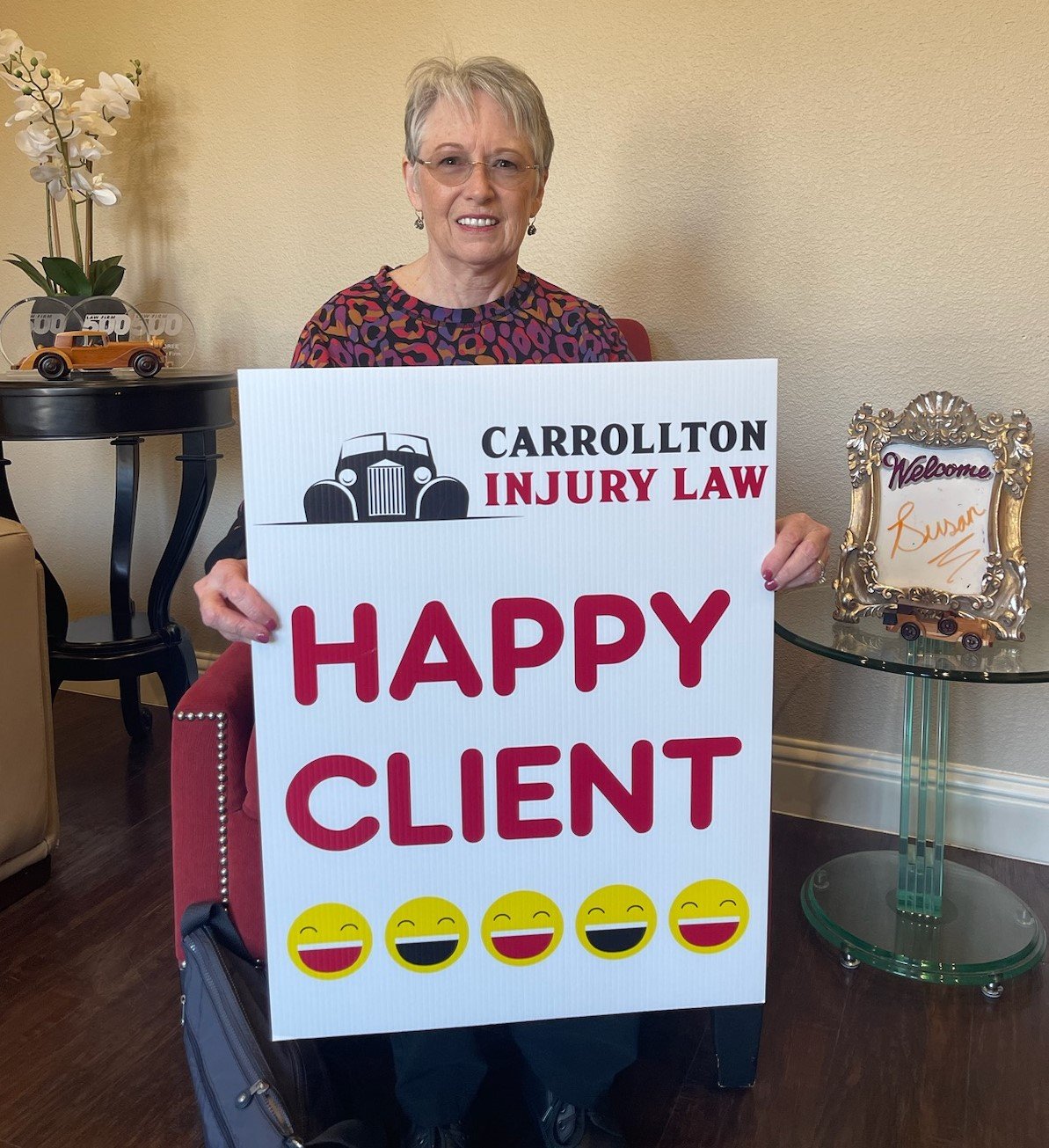

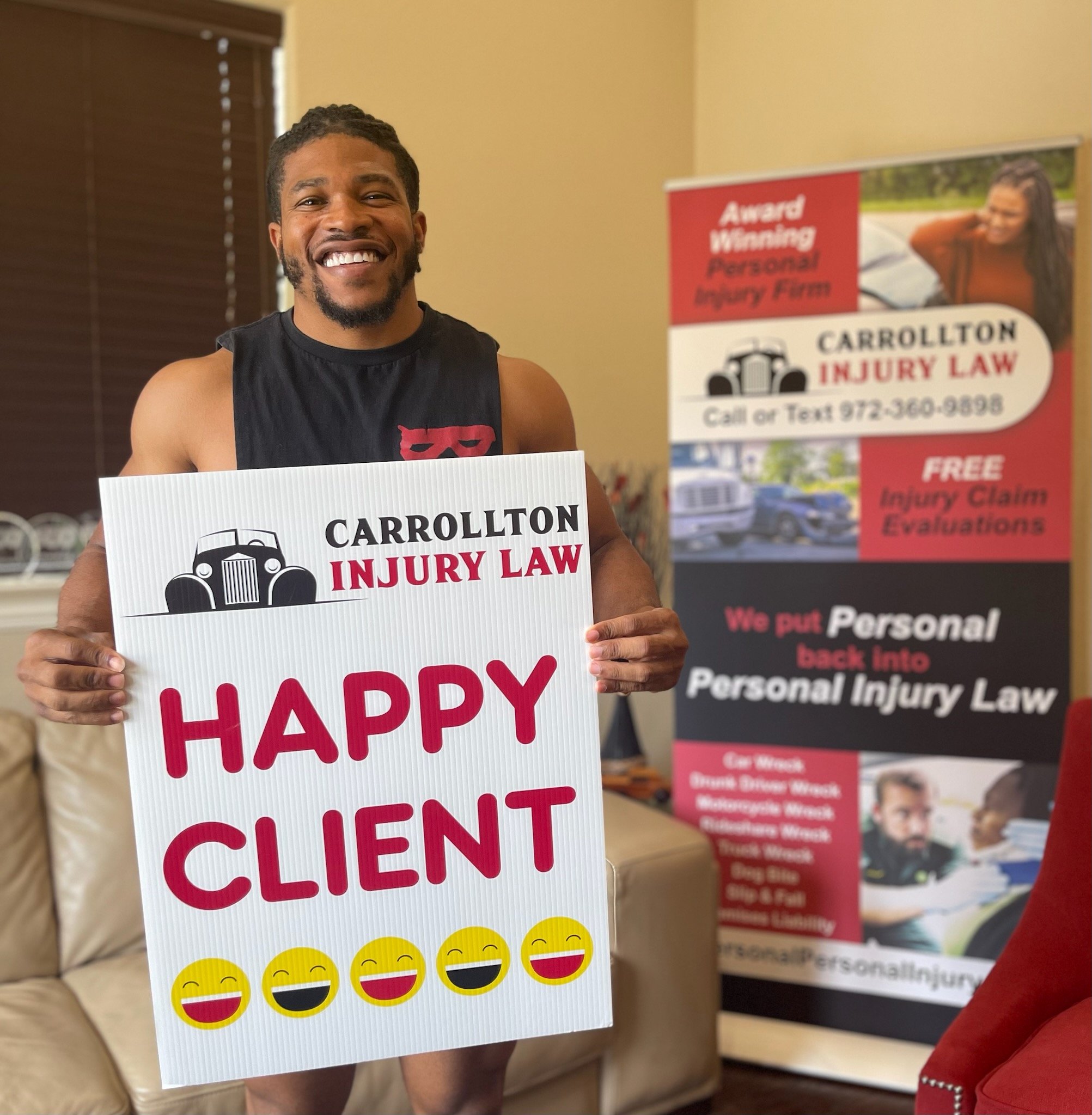

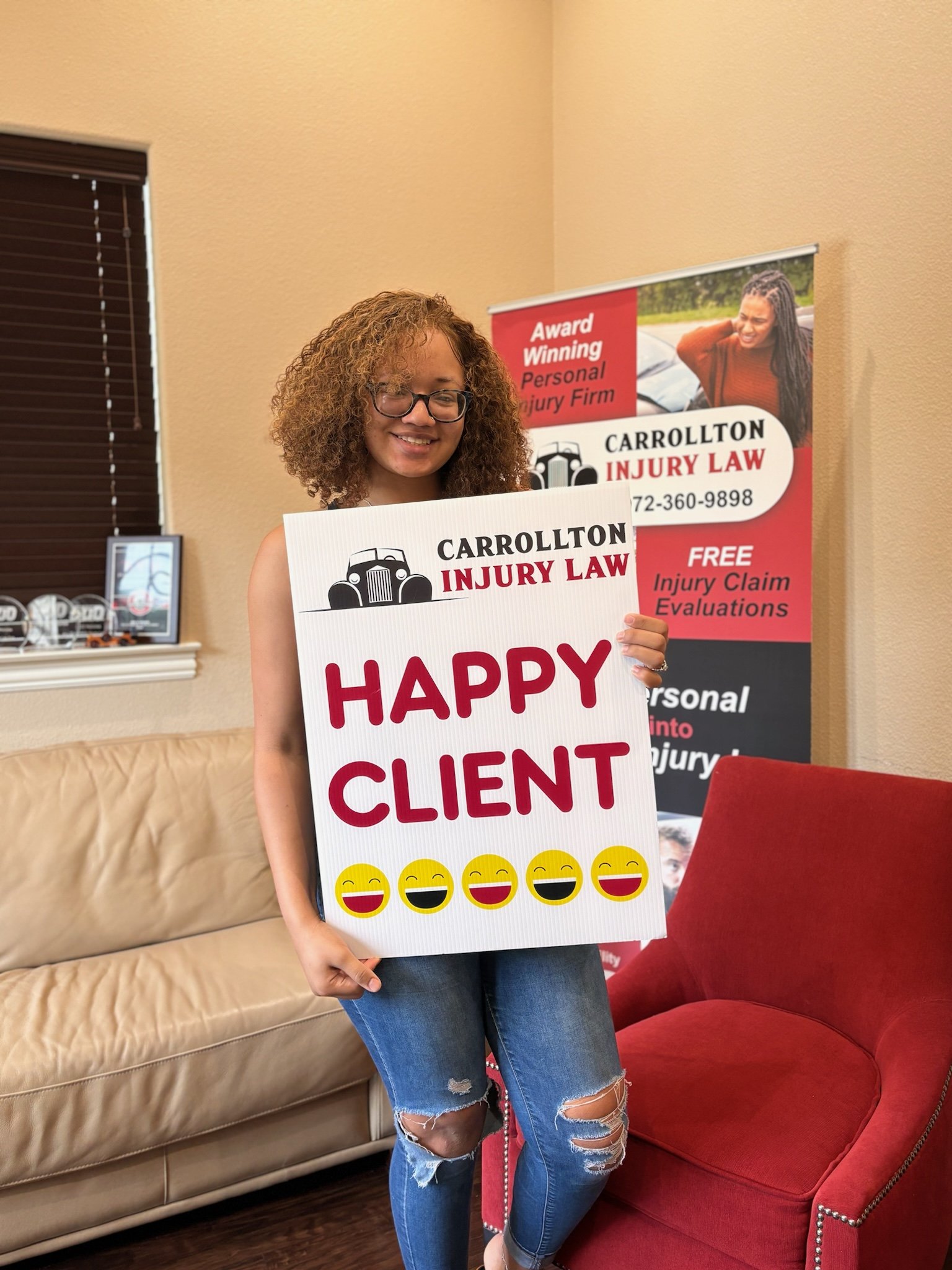

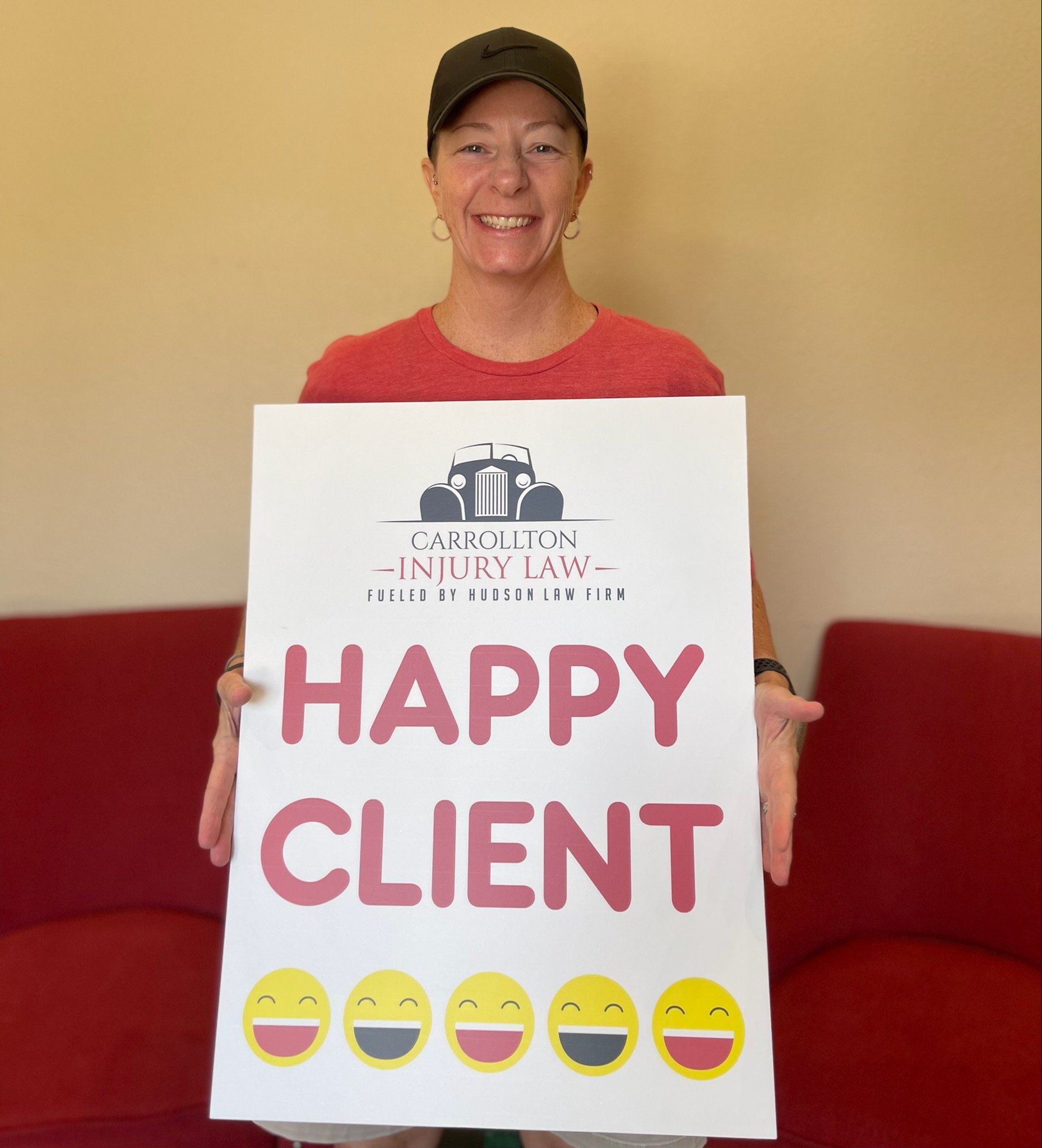
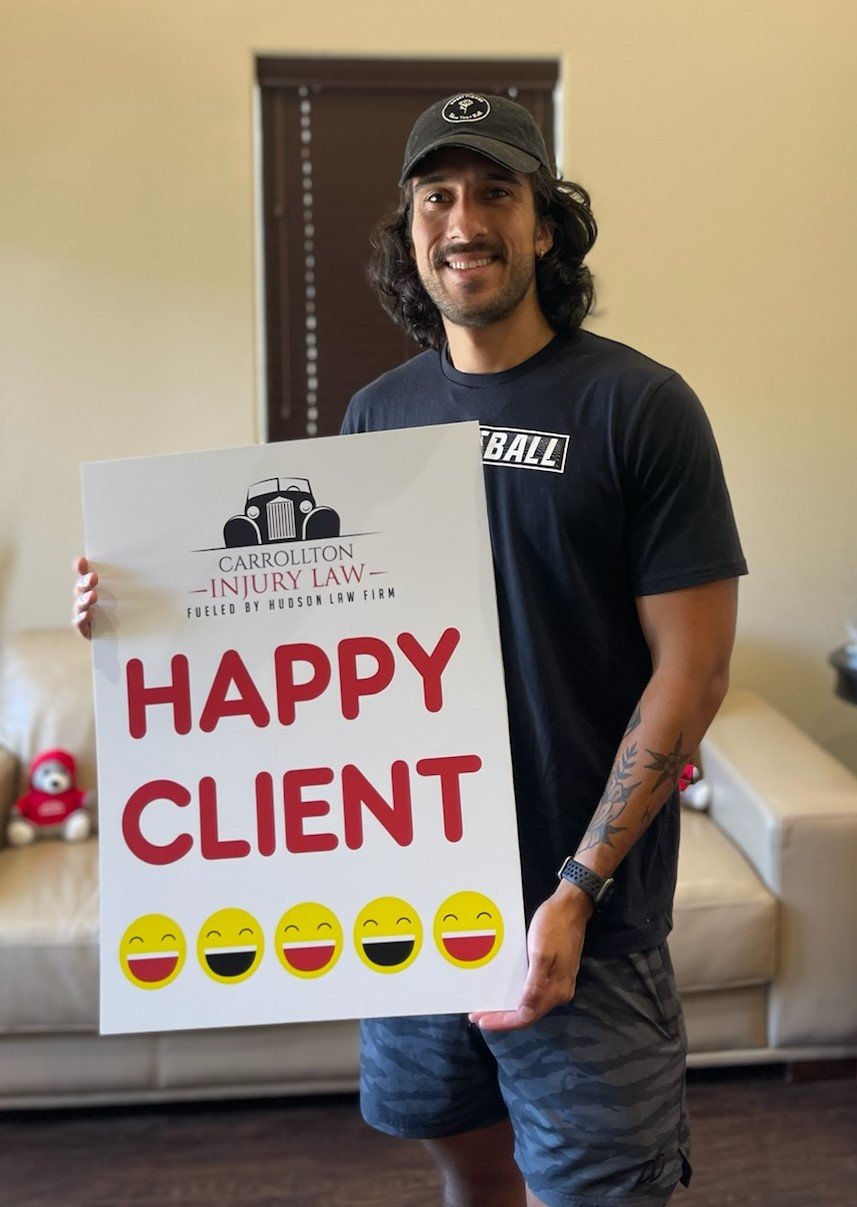
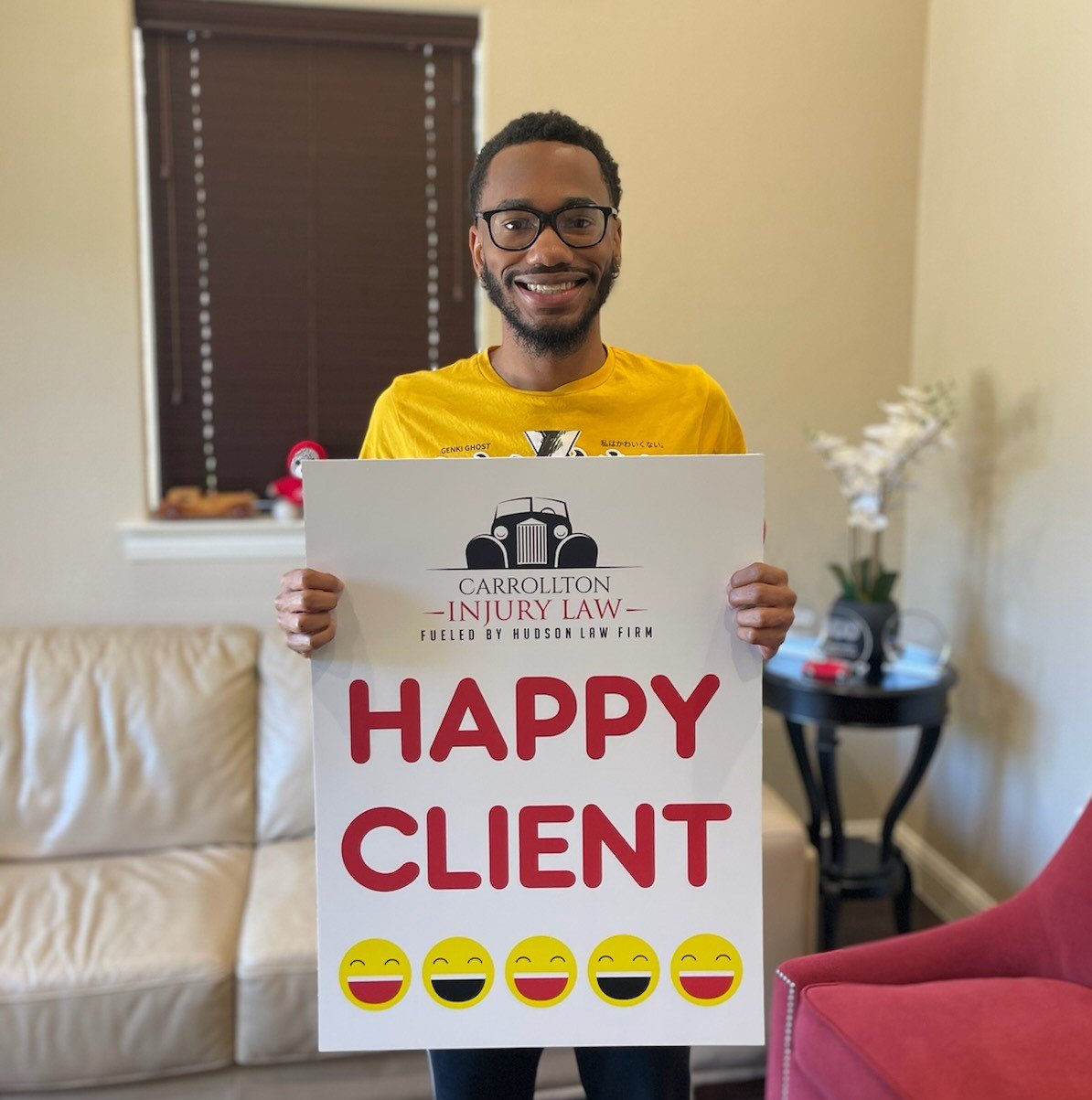
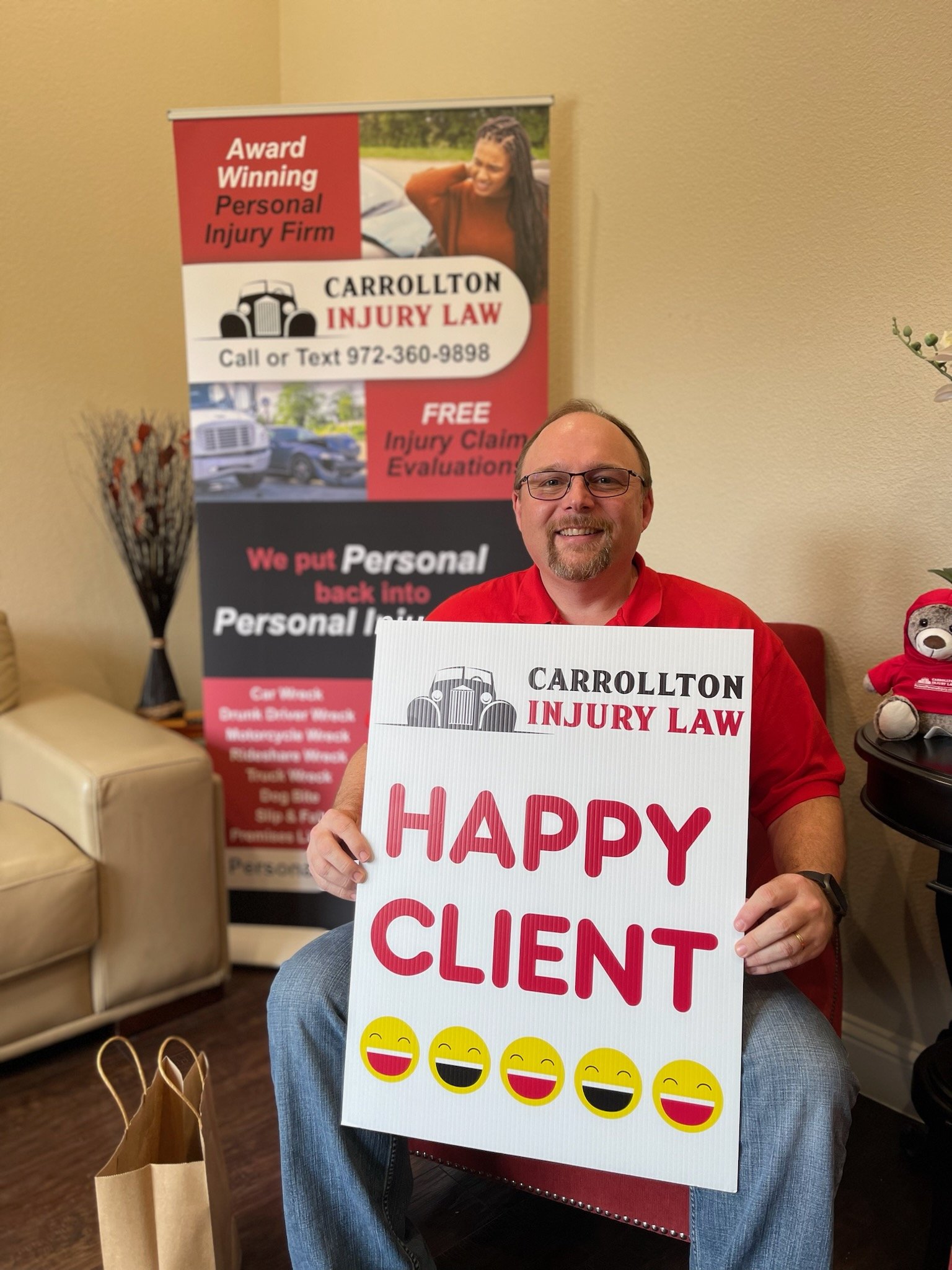
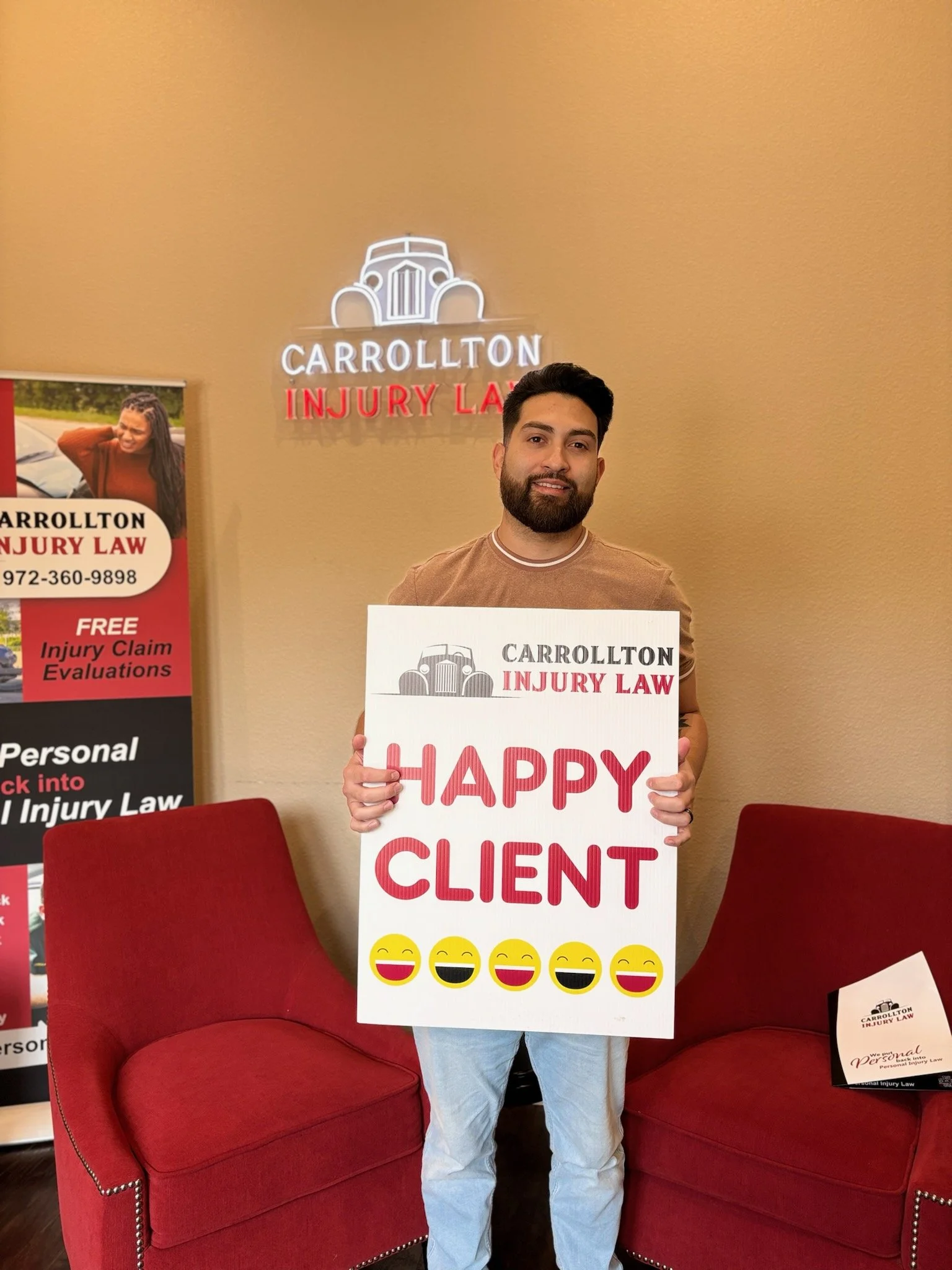


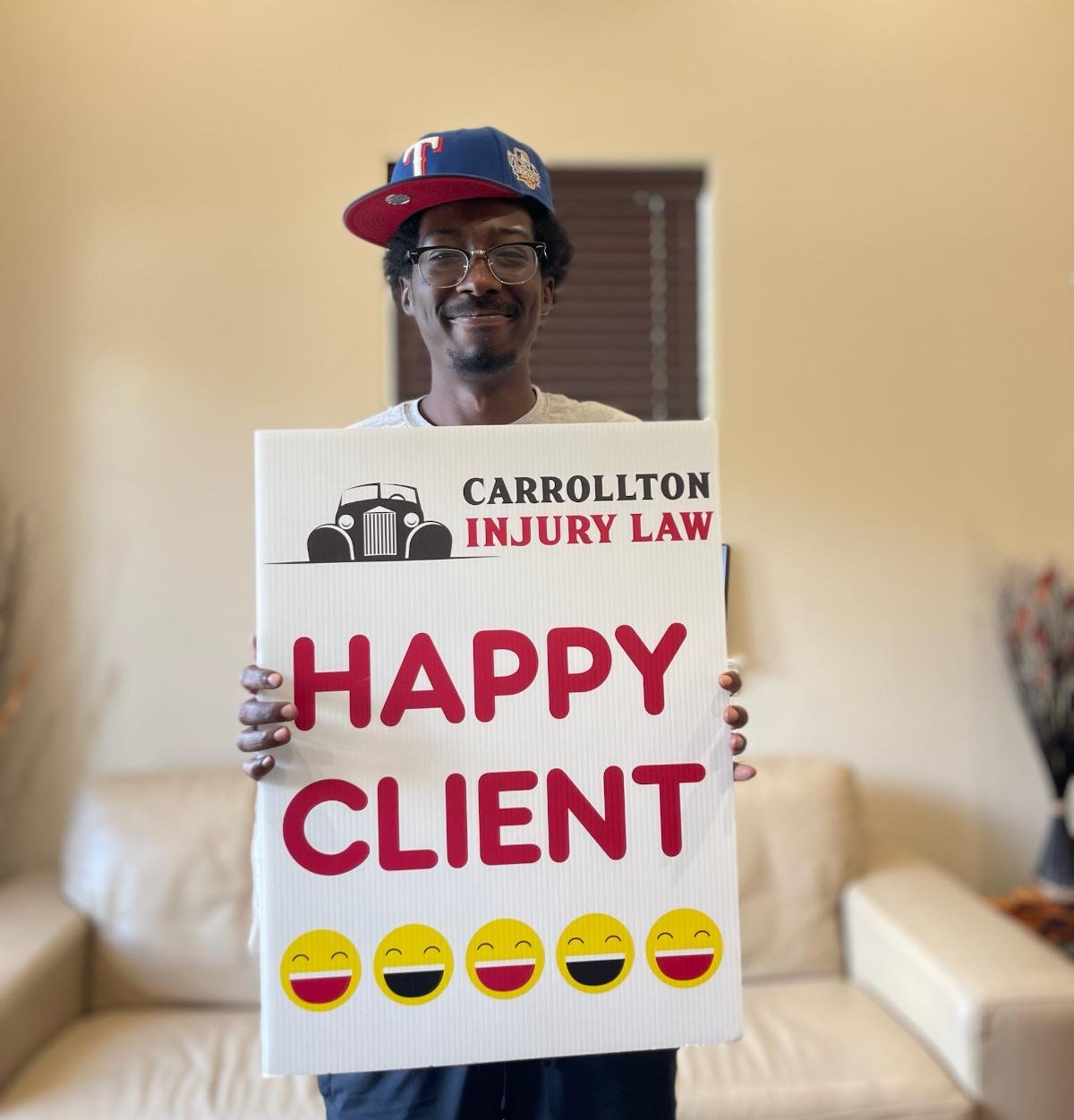
What Our Clients Say
Understanding Car Accidents in Carrollton
Carrollton, Texas, is a bustling city with a significant amount of vehicle traffic. Unfortunately, with increased traffic comes a higher likelihood of car accidents. These incidents can range from minor fender-benders to severe collisions resulting in catastrophic injuries.
Common Causes of Car Accidents
Understanding the common causes of car accidents can aid in prevention and highlight areas where drivers should exercise additional caution:
Distracted Driving: Activities such as texting, talking on the phone, or using in-car technologies divert attention from the road.
Speeding: Exceeding the speed limit reduces a driver's ability to react to sudden changes, increasing the severity of accidents.
Driving Under the Influence: Operating a vehicle while impaired by alcohol or drugs significantly impairs judgment and reaction times.
Reckless Driving: Aggressive behaviors like tailgating, weaving through traffic, and ignoring traffic signals endanger all road users.
Weather Conditions: Rain, fog, and other adverse weather conditions can make roads slippery and reduce visibility, leading to accidents.
Types of Car Accidents
Car accidents can occur in various forms, each presenting unique challenges:
Rear-End Collisions: Often caused by following too closely or sudden stops.
Head-On Collisions: These are among the most dangerous and often result from wrong-way driving or loss of control.
Side-Impact (T-Bone) Collisions: Typically occur at intersections when one driver fails to yield.
Multi-Vehicle Pile-Ups: Involve multiple cars and can be particularly complex regarding liability.
Single Vehicle Accidents: Involve only one car, often due to driver error, obstacles, or adverse conditions.
The Impact of Car Accidents
The repercussions of a car accident extend beyond immediate physical injuries:
Physical Injuries
Injuries can range from minor cuts and bruises to severe conditions such as:
Whiplash: Neck injuries resulting from sudden jerking motions.
Broken Bones: Fractures can require extensive medical treatment and rehabilitation.
Traumatic Brain Injuries (TBI): Serious head injuries that can have long-term effects.
Spinal Cord Injuries: May lead to partial or complete paralysis.
Emotional and Psychological Effects
The trauma from an accident can lead to:
Post-Traumatic Stress Disorder (PTSD): Anxiety and flashbacks related to the accident.
Depression: Feelings of sadness and hopelessness following the incident.
Anxiety: Increased fear, especially related to driving or riding in vehicles.
Financial Burdens
Accidents often result in unexpected expenses, including:
Medical Bills: Costs for emergency care, surgeries, medications, and ongoing treatments.
Lost Wages: Time away from work during recovery can lead to lost income.
Property Damage: Expenses related to repairing or replacing your vehicle.
Rehabilitation Costs: Expenses for physical therapy and other rehabilitation services.
Why You Need a Car Accident Lawyer?
Navigating the aftermath of a car accident involves complex legal processes. Having an experienced car accident lawyer can provide numerous benefits:
Legal Expertise
An attorney understands the intricacies of personal injury law in Texas, including statutes of limitations, comparative negligence rules, and the types of compensation available.
Negotiation Skills
Insurance companies often aim to minimize payouts. A skilled lawyer can negotiate effectively to seek fair compensation on your behalf.
Evidence Gathering
Building a strong case requires collecting and preserving evidence such as medical records, accident reports, witness statements, and expert testimonies.
Representation in Court
If a fair settlement cannot be reached, an attorney can represent you in court, advocating for your rights and interests.
Carrollton Injury Law: Your Advocate in Car Accident Cases
At Carrollton Injury Law, we are committed to putting the "personal" back into personal injury law. Our approach is centered on respect, responsiveness, and results.
Our Approach
Personalized Attention: We treat each client as an individual, not just a case number. Our team takes the time to understand your unique circumstances and tailor our legal strategies accordingly.
Open Communication: We believe in maintaining regular communication, keeping you informed about your case's progress, and promptly addressing any questions or concerns.
No Upfront Fees: We operate on a contingency fee basis, meaning you don't pay unless we secure compensation for you.
Our Services
We offer comprehensive legal services to assist you through every stage of your car accident claim:
Free Injury Claim Evaluation: We provide a no-obligation consultation to assess your case and discuss potential legal avenues.
Medical Treatment Coordination: We can connect you with a network of medical professionals who will provide necessary treatment, deferring payment until your case is resolved.
Thorough Investigation: Our team will conduct a meticulous investigation to determine liability and build a compelling claim on your behalf.
Steps to Take After a Car Accident
Taking the right steps immediately after an accident can significantly impact your ability to recover compensation:
1. Seek Medical Attention
Your health is the top priority. Even if injuries seem minor, some conditions, like internal injuries or concussions, may not be immediately apparent.
2. Call the Police
Having an official police report is crucial for documenting the accident and proving fault.
3. Gather Evidence
If you are physically able, collect information at the scene, including:
Photos of the accident, vehicle damage, and road conditions.
Contact details of the other driver and any witnesses.
Insurance information of all involved parties.
4. Avoid Admitting Fault
Even saying something as simple as "I'm sorry" can be used against you by insurance companies.
5. Contact a Car Accident Lawyer
The sooner you seek legal representation, the better your chances of protecting your rights and maximizing compensation.
Understanding the Claims Process
Filing a car accident claim involves multiple steps, and having legal guidance ensures you do not miss crucial deadlines or accept an unfair settlement.
Step 1: Initial Consultation
A lawyer will review your case, assess liability, and determine the best legal strategy.
Step 2: Investigation and Evidence Collection
This includes gathering medical records, accident reports, and expert testimony to support your claim.
Step 3: Negotiating with Insurance Companies
Your attorney will handle all communication and fight to secure a fair settlement.
Step 4: Filing a Lawsuit (If Necessary)
If negotiations do not lead to a fair offer, your lawyer may take the case to court.
Common Challenges in Car Accident Cases
Dealing with Insurance Adjusters
Insurance companies often attempt to reduce payouts by:
Denying claims outright
Offering low settlements
Arguing that your injuries are pre-existing or exaggerated
Proving Fault in a Texas Car Accident
Texas follows a modified comparative negligence rule, meaning you can recover damages as long as you are less than 51% at fault for the accident. However, proving liability can be complex without strong evidence and legal representation.
Uninsured or Underinsured Motorists
If the at-fault driver lacks insurance, you may need to file a claim under your uninsured/underinsured motorist coverage. Our team can help you navigate this process to ensure you receive proper compensation.
Frequently Asked Questions (FAQs)
1. How Long Do I Have to File a Claim?
In Texas, you generally have two years from the date of the accident to file a personal injury lawsuit.
2. How Much Compensation Can I Expect?
Compensation varies depending on the severity of injuries, medical costs, lost wages, and pain and suffering. An attorney can provide a better estimate based on your case specifics.
3. What If I Was Partially at Fault?
You can still recover damages, but your compensation will be reduced based on your percentage of fault. If you are more than 50% responsible, you may be barred from recovery.
4. How Long Will My Case Take?
Simple cases may settle in a few months, while complex cases involving severe injuries or disputed liability can take longer.
5. What Should I Do If the Insurance Company Offers Me a Settlement?
Never accept an insurance settlement without consulting a lawyer first. Insurers often lowball victims in hopes they will settle quickly for less than they deserve.
Contact Carrollton Injury Law Today for a Free Car Accident Injury Claim Evaluation
If you or a loved one has been injured in a car accident, you don’t have to go through this alone.
The Carrollton Injury Law team is here to fight for your rights and help you obtain the maximum compensation possible.
We proudly serve Carrollton, Texas, and surrounding areas.
Let us help you rebuild your life after a serious car accident.
You focus on healing—we’ll handle the rest.
Free Injury Claim Evaluation
No Fee Unless We Win

